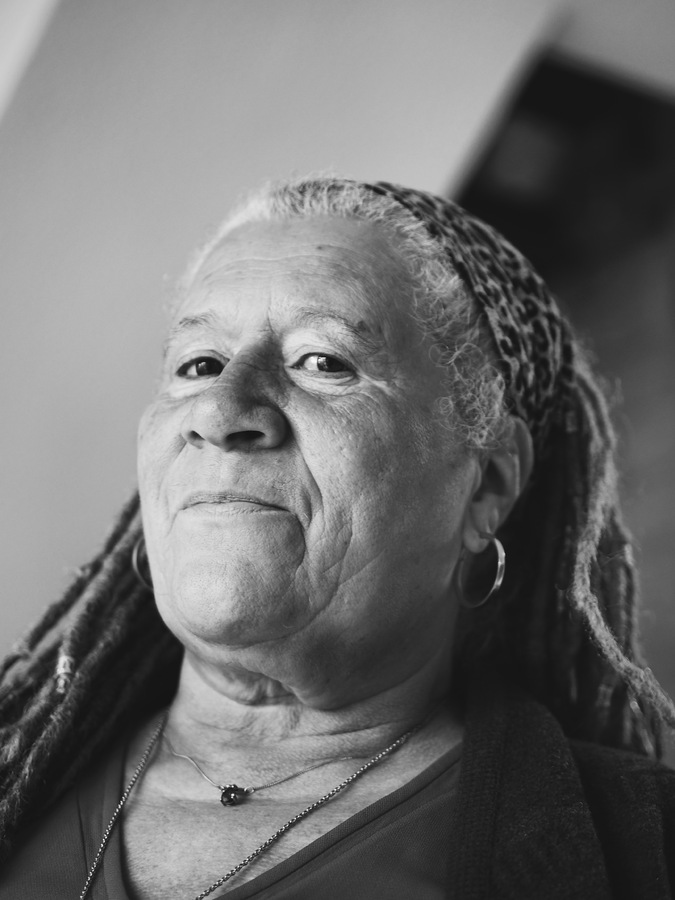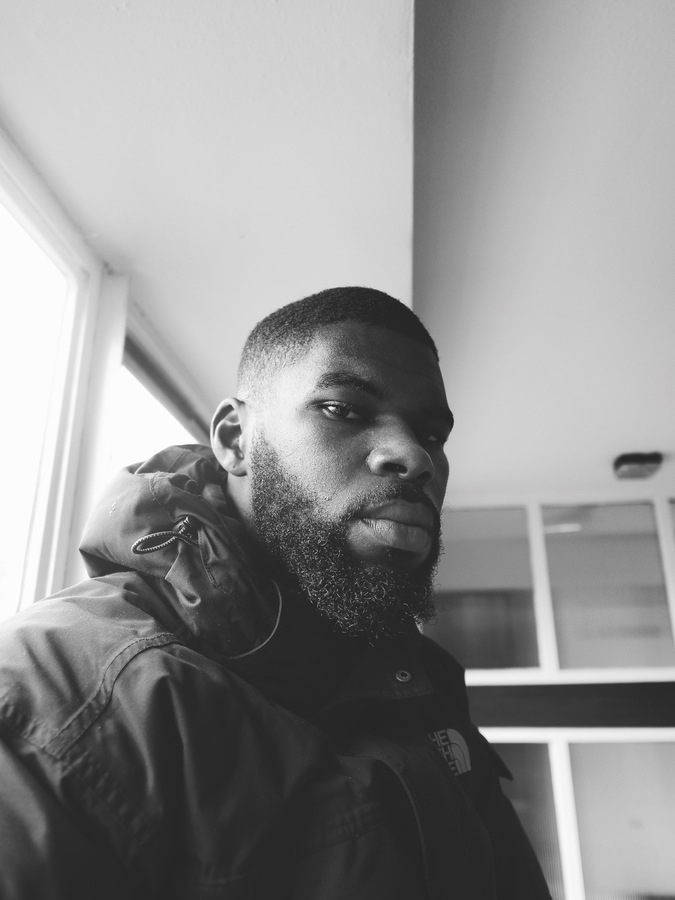Get updates from The Developer straight to your inbox Yes, please!
Authors of the Estate: how one writer is turning council houses into publishing houses
André Anderson is challenging the negative, outsider views of estates by transforming residents into writers. The result is a kind of “anti-gentrification system”. Emma Warren reports

André Anderson, the 27-year-old author, publisher, poet, designer and heavily understated creative communitarian is explaining what it means to turn council houses into publishing houses as we walk through the Chalkhill Estate in north-west London. He is dressed as always in top-to-toe black.
“We’re not just changing the narrative externally,” Anderson says. “We’re also going to change ourselves. We’re repurposing everything that has been thrown at us – the space and the stories that are given to us – and we’re using them to build wealth for ourselves.”
He’s the man behind Freedom & Balance which launched this year as an “art college for the artist in everyone”. The college releases regular briefs – curricula, as he describes them – by email and on social media, with the aim of growing local creative voices for global benefit. Anderson is the headmaster, in another example of the exploratory ways he is using language to reframe possibility.
Freedom and Balance’s most recent curricula resulted in a new book, Authors of the Estate, which he made with 22 authors who reside on Chalkhill. He published it independently, paying for the print run himself.
“We’ve released new terms into our culture the same way people release new software updates,” says Anderson, as we walk through a series of blocks named after famous scientists. “‘Author’ is now a title in the ends. That language gives people a new framework for how they see the estate, but also how they see the people who live on them. The idea of being an author, of being a publishing house, or being a headmaster is possible.”
Authors of the Estate resonates on many of the layers that exist in a culturally rich community like Chalkhill, one of which relates to local pride. It is, they believe, an anti-gentrification system
Full disclosure: I’ve known headmaster Anderson since we met a decade ago at Brixton-based youth-run publication Live Magazine when he was simply André. I’ve followed his six self-published books including 2015’s inaugural Authors of the Estate which collected stories and reflections from his home estate St Raphael’s. St Raph’s sits just down the road from Chalkhill and is similarly perceived by outsiders as a site of violence rather than creativity, bar mentions of famous ex-residents Raheem Sterling and George The Poet.
There’s clearly an appetite for his reframing: the book sold out in a week, and he and Chalkhill instigator and biomedical sciences graduate Nabil Al-Kinani are being invited to talk by groups as diverse as Stormzy’s Merky Books and the UCA Canterbury School of Architecture.
The small and stylish monochrome book features writers, poets, thinkers and photographers aged 17-60, along with a raft of local supporters. It was created swiftly: the whole process, from first meetings to launch party at the nearby Getty Images gallery, took only 12 weeks.
The negative outsider view of the estate is challenged within these pages. An ex-resident reminisces about the hard knock life from Texas where he now teaches at a top 3% international school and another mocks up imagined minutes from a 2027 residents meeting where Chalkhill families own their own freeholds and rather than railing against brutal gentrification are planning university bursaries and retail units.
Calling this a book might be an understatement. Anderson believes that Authors of the Estate is a wealth-generating ecosystem working across social capital and personal income (contributors make new connections, authors keep 100% profits from books they sell themselves); a transformative manifesto urging collective enfranchisement in property ownership and narrative; and a set of tools for empowerment through the medium of publishing (the book explains exactly how other communities can do the same). It is also a brilliant and mind-expanding read.
“You often believe the stories that are told about you,” says Anderson as we walk through the canalside scrubland that links the two estates. “We have a lot of stories like Kidulthood or Top Boy. That reality is a very real reality and we can’t negate it. That story goes out into the world and it affects the everyday person, so when someone like me walks onto a train you can tell that your body is a threat. People aren’t necessarily comfortable with you because of the stories they’ve heard.”
“This celebration of black death is very annoying,” he adds, his voice momentarily flatter than usual. “I want that same energy when someone is alive.”
The book doesn’t shy away from the turbulent realities of life on London estates and the very real dangers associated with inter-estate violence. This is an especially tender subject for the individuals behind Authors of the Estate, given that the summer saw three local young men lose their lives: Kwasi, James and Craig could have been authors, but instead their names appear in the book with three letters next to them: RIP.
“Everyone’s on survival mode and creativity dies with that. It’s not nourished, it’s not encouraged, and because you’re so strapped of cash the rat race comes forward,” says Nabil Al-Kinani down the phone on his way to deliver a talk to architecture undergraduates.
“The book is uniting communities who otherwise wouldn’t have a reason to engage with each other. It was very brave of André to come into Chalkhill as someone who represents St Raphael’s to help the community pen down their stories and their thoughts. I don’t see a stronger way of ending a feud than that.”
Of course, it is not estate rivalry or drug dealing that kills, but hardcore austerity that limits horizons and exerts the kind of downward pressure that the UN Special Rapporteur on Extreme Poverty described as “systemic” and “tragic” in the May 2019 report on the UK. These are real and perilous pressures: travelling back from Chalkhill, unwelcome news drops into Anderson’s phone: a man’s body had been found in a communal area we walked past just an hour before.
Authors of the Estate resonates on many of the layers that exist in a culturally rich community like Chalkhill, one of which relates to local pride. It is, they believe, an anti-gentrification system.
“People say that reading it makes them want to stay in north-west London,” says Anderson. “It’s given them pride in their area. We’ve introduced a new conversation, that success is what you put into the hood, not that you moved out or moved your mum out. Time will tell how effective that story is.”
Around the corner – or perhaps around a few corners – there’s a big dream for a Freedom & Balance London campus, and an intention to expand the project internationally. “I want a Tokyo campus,” he says.
Al-Kinani has plans too, of an equally ambitious kind: “I want producing books to be as frequent as music dropped in our communities. I want it to be celebrated with just as much awe and excitement as an album drop by Stormzy.”
Emma Warren is a journalist and author of Make Some Space, a manifesto for creating musical communities in the 21st century
Sign up to our newsletter
Get updates from The Developer straight to your inbox
Thanks to our organisation members
Become a member
© Festival of Place - Tweak Ltd., 124 City Road, London, EC1V 2NX. Tel: 020 3326 7238



